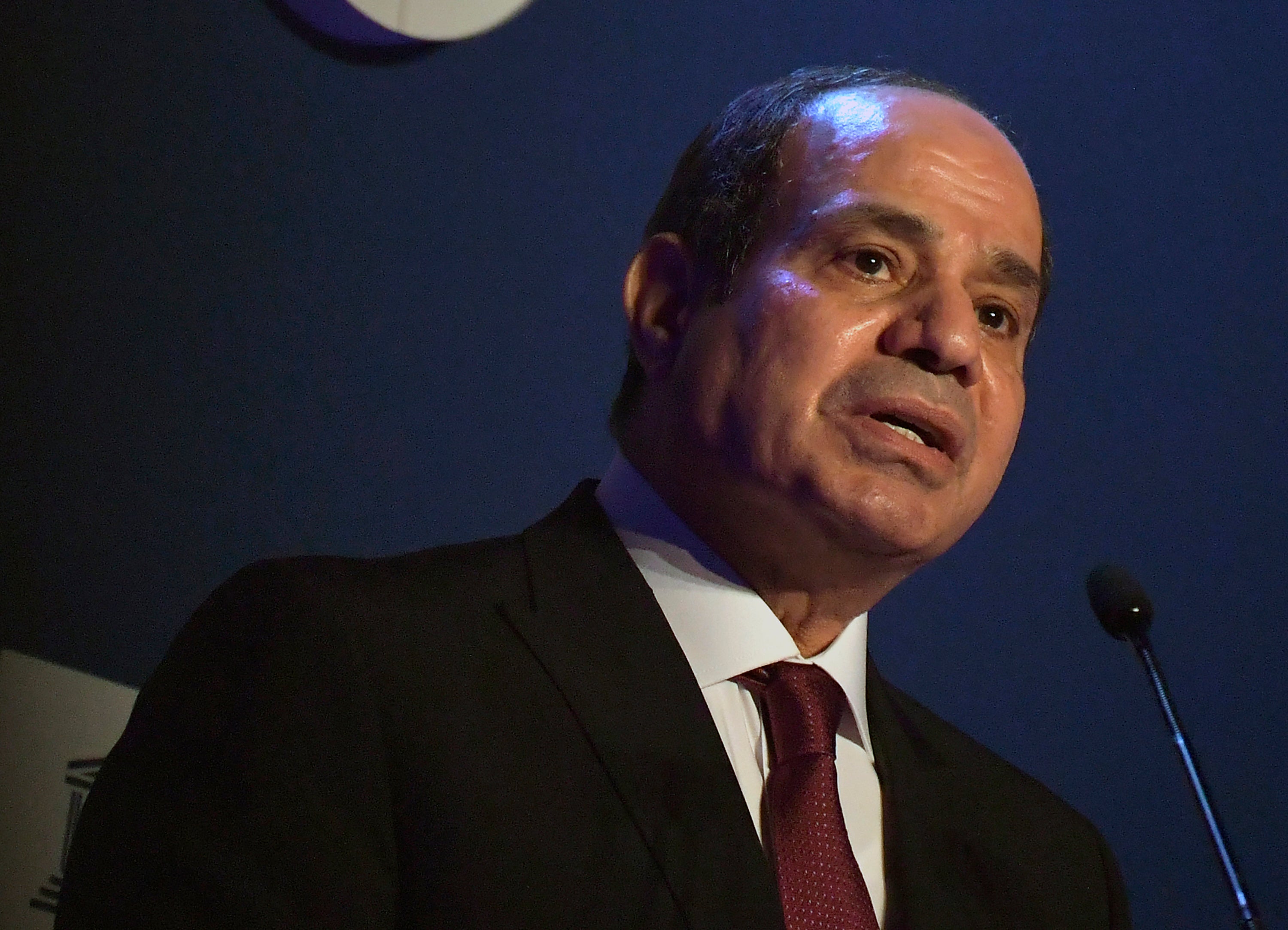US approves major arms sale to Egypt despite rights concerns
The Biden administration has approved a massive $2.5 billion arms sale to Egypt despite ongoing concerns over human rights

Your support helps us to tell the story
From reproductive rights to climate change to Big Tech, The Independent is on the ground when the story is developing. Whether it's investigating the financials of Elon Musk's pro-Trump PAC or producing our latest documentary, 'The A Word', which shines a light on the American women fighting for reproductive rights, we know how important it is to parse out the facts from the messaging.
At such a critical moment in US history, we need reporters on the ground. Your donation allows us to keep sending journalists to speak to both sides of the story.
The Independent is trusted by Americans across the entire political spectrum. And unlike many other quality news outlets, we choose not to lock Americans out of our reporting and analysis with paywalls. We believe quality journalism should be available to everyone, paid for by those who can afford it.
Your support makes all the difference.The Biden administration on Tuesday approved a massive $2.5 billion arms sale to Egypt despite ongoing concerns over human rights.
The sales were announced just hours after congressional Democrats urged the administration not to release a much smaller package of military assistance that had been put on hold last year pending the Egyptian government meeting certain rights-related conditions.
The State Department said Tuesday's sale was unrelated to $130 million in foreign military financing that was frozen in September and remains in limbo.
But the size of the sale dwarfed the amount of withheld assistance and is likely to draw criticism from lawmakers who are demanding the administration make good on pledges to tie arms transfers to countries meeting minimal human rights standards.
Tuesday’s sale included 12 Super Hercules C-130 transport aircraft and related equipment worth $2.2 billion, and air defense radar systems worth an estimated $355 million.
“This proposed sale will support the foreign policy and national security of the United States by helping to improve the security of a major non-NATO ally country that continues to be an important strategic partner in the Middle East,” the State Department said.
“We maintain that our bilateral relationship with Egypt will be stronger, and America’s interests will be better served, through continued U.S. engagement to advance our national security interests, including addressing our human rights concerns,” it said.
Shortly before the sale was announced a group of six House Democrats, including the chairman of the House Foreign Affairs Committee, Rep. Gregory Meeks of New York, and Sen. Chris Murphy D-Conn., called on the administration to insist that Egypt meet human rights criteria for military transfers.
“While we recognize and reaffirm important steps Egypt has taken in recent weeks to address such concerns by releasing certain political prisoners and individuals unjustly detained, the Egyptian government must meet the administration’s conditions in full by the communicated deadline,” Meeks and his colleagues said in a letter to Secretary of State Antony Blinken
“If not, we urge you to stand by your word and immediately reprogram withheld funds,” they said.
Meanwhile, Murphy said, “Egypt looks unlikely and unwilling to meet the narrow conditions on the remaining $130 million in military aid by the deadline, while the human rights situation more broadly has only deteriorated over the last few months.”
"If Egypt doesn’t meet the conditions in full, the administration has to stand firm and show the world that our actions live up to our stated commitment to democracy and human rights,” Murphy said.
In September, Blinken announced that the administration would proceed with providing Egypt with $300 million in foreign military financing but would withhold another $130 million until the government “affirmatively addresses specific human-rights related conditions.”
It was not immediately clear if Tuesday's arms sale indicated that Blinken had decided that Egypt has satisfactorily addressed those issues.
Egypt’s government has in recent years waged a wide-scale crackdown on dissent, jailing thousands of people, mainly Islamists but also secular activists who were involved in the 2011 Arab Spring uprising that toppled the country’s longtime autocrat Hosni Mubarak.
Egypt imposed a state of emergency in April 2017, following deadly church bombings and attacks on Coptic Christians that killed more than 100 people and wounded scores. It allowed for arrests without warrants, swift prosecution of suspects and the establishment of special courts.
The state of emergency has since been extended several times. However, President Abdel Fattah el-Sissi announced in October, when the last extension expired, that his government will no longer renew it.